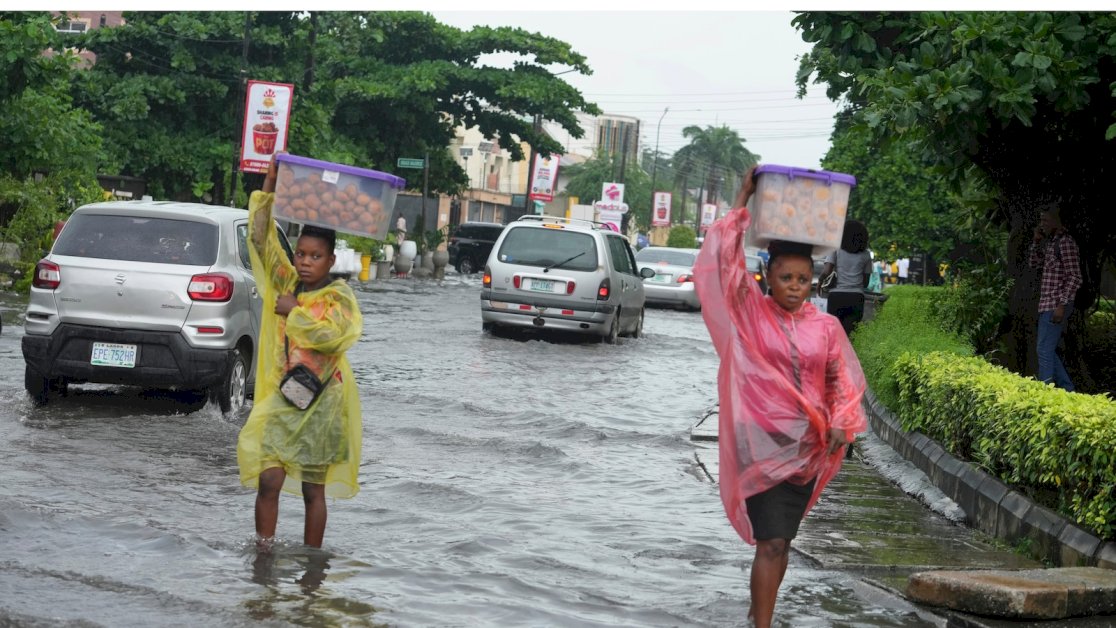
The flooding, which began weeks ago, has caused widespread destruction and displacement of people from their homes. The situation is particularly dire in rural areas where access to basic amenities such as clean water and healthcare is limited.
According to the National Emergency Management Agency (NEMA), over 800,000 people have been affected by the floods across 12 states in Nigeria. The agency also reported that more than 70,000 hectares of farmland have been destroyed, leading to concerns about food security.
The Nigerian government has responded by setting up emergency relief camps for those displaced by the floods. However, these camps are often overcrowded and lack adequate resources to cater for all those affected.
In addition to displacing people and destroying farmlands, flooding also poses a significant health risk as it can lead to outbreaks of waterborne diseases such as cholera and typhoid fever. This is especially concerning given that Nigeria is already grappling with a number of health challenges including COVID-19.
To mitigate against these risks, there is an urgent need for increased investment in disaster

What measures are being taken to provide food assistance to flood victims in Nigeria?
Devastating Floods in Nigeria: Lives Lost and Farmland Washed Away, Sparking Food Security Fears
Nigeria has been hit by some of the worst floods in recent years. The floods have caused massive damage to the people and farmlands, leading to the loss of lives, damage to property, and crop failure, sparking food security fears in the country. A combination of factors, including heavy rainfall, poor drainage systems, climate change, and environmental degradation, has contributed to the floods. In this article, we will look at the devastating floods in Nigeria, how they have affected the people and farmland, and the food security fears they have sparked.
Damage caused by the floods
The floods in Nigeria have caused extensive damage to the people, farmland, and infrastructure. The flooding has destroyed homes, swept away bridges and roads, and disrupted transportation networks. The Nigerian authorities, civil society organizations, and humanitarian agencies are struggling to respond to the disaster.
The floods have also washed away farmland, leading to crop failure and food shortages. The floods have occurred at the worst possible time, as Nigeria is already facing food insecurity due to conflicts, economic challenges, and COVID-19 pandemic. The floods have further exacerbated the food security situation in the country, threatening the livelihoods and nutritional status of millions of people.
The loss of lives in the floods
The floods have claimed the lives of many people in Nigeria. According to the National Emergency Management Agency (NEMA), the floods have killed at least 68 people, displaced over 50,000, and affected more than 100,000 people in 35 states in Nigeria. The floods have affected both urban and rural areas, with women and children being the most vulnerable.
The flood also hit schools, making a high number of parents withdraw their wards from schools, increasing the risk of increasing illiteracy in the affected areas. Many businesses have been destroyed, leaving thousands of people without a source of income and increasing their vulnerability to poverty.
The role of climate change and environmental degradation
The floods in Nigeria are linked to climate change and environmental degradation. Nigeria is one of the most vulnerable countries in the world to climate change, with erratic rainfall, droughts, and floods becoming more frequent and intense. The floods are also linked to poor land use practices, deforestation, and the construction of buildings on waterways.
One of the unfortunate causes of the floods is the lack of an effective drainage system. Available drainage systems are often inadequate to handle the massive runoff, leading to torrential flooding in settlements. The Nigerian government has recently launched an agenda to fix urban drainage systems to alleviate flooding in major cities. However, the government needs to make significant strides in developing an effective drainage system across the country to tackle the challenge of flooding in rural areas.
Food security fears
The floods have sparked food security fears in Nigeria, exacerbating the already existing food insecurity situation in the country. According to the Food and Agricultural Organization of the United Nations (FAO), over 2.5 million people in Nigeria are in urgent need of food assistance due to previous conflicts, economic challenges, and the COVID-19 pandemic.
The floods have washed away farmlands, leading to crop failure and food shortages. This has further threatened food security in the country, exacerbating the nutritional status of millions of people, including children, pregnant women, and lactating mothers. NGOs are on the ground responding to the situation and distributing food and other essential items to those affected.
Conclusion
The recent spate of floods in Nigeria has caused considerable damage to the people and infrastructure, leading to loss of lives and sparking food security fears. The floods are linked to climate change, poor land use practices, environmental degradation, and inadequate drainage systems. Addressing these challenges will require broad-based action by the government, private sector, and civil society. The Nigerian government can invest in an effective drainage system and improve poverty reduction measures to tackle the impact of floods in the country. Until then, more needs to be done to support the victims of the floods and address their food security concerns.All rights reserved. This material, and other digital content on this website, may not be reproduced, published, broadcast, rewritten or redistributed in whole or in part without prior express written permission from MONTAGE AFRICA.
Contact: editor@montageafrica.com



